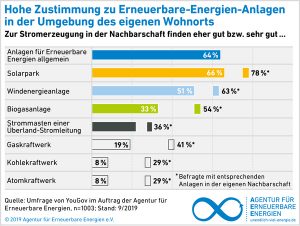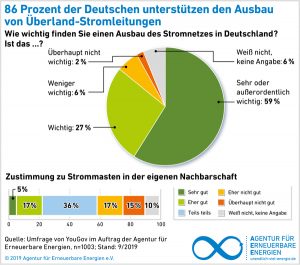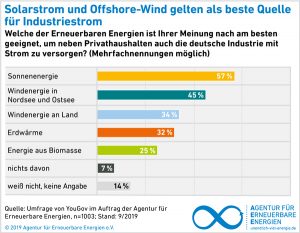Ecological living in existing quarters
 Since April 2020, the Öko-Institut has been conducting research into how urban neighbourhoods can be sustainably transformed, using two neighbourhoods in the swarming city of Darmstadt as examples, in the project Transformative Strategies for Integrated Neighbourhood Development (TRASIQ 2). The Federal Ministry of Education and Research is funding the project, which is led by the Öko-Institut and involves the City of Darmstadt, the Institute for Regional and Urban Development Research (ILS) and the "Team Ewen" agency.
Since April 2020, the Öko-Institut has been conducting research into how urban neighbourhoods can be sustainably transformed, using two neighbourhoods in the swarming city of Darmstadt as examples, in the project Transformative Strategies for Integrated Neighbourhood Development (TRASIQ 2). The Federal Ministry of Education and Research is funding the project, which is led by the Öko-Institut and involves the City of Darmstadt, the Institute for Regional and Urban Development Research (ILS) and the "Team Ewen" agency.
Mobility, heat and living space
The project focuses on the research topics of mobility, heat supply and efficient use of living space. Heat supply is an important key to climate-friendly living. How and where, for example, can district heating be expanded in existing properties? How can we increase the share of renewable energies in the heat supply? The size of the living space also contributes to how environmentally friendly a person lives. What needs to be done to ensure that people have the living space they need in their particular phase of life through intelligent apartment swaps? How can neighbourhoods be redesigned so that residents can organise their mobility ecologically?
In September 2020, the project partners with stakeholders from the Urban Planning Office, the Office of Economic and Urban Development and the Mobility Office of the City of Darmstadt, the Urban and Transport Planning Department, HEAG mobilo, Bauverein AG, GHW Wohnungsgesellschaft Hessen, the Tenants' Association and the Office of the Ombudsman, developed and exchanged initial ideas for the two neighbourhoods as part of TRASIQ 2 at a workshop.
Participation in the development of the neighbourhood
Citizens are involved at an early stage. The instrument of the planning forums makes it possible to select citizens with different perspectives and interests - from the residents, from the city as a whole and from those wishing to move in.
Orientation for urban planners, architects
The aim of the project is to transfer the results from the TRASIQ 1 project, which focused on a future quarter on a conversion site, to the transformation of two existing quarters. "The challenge here is that the successful implementation of transformation processes in existing neighbourhoods is more difficult than in new-build neighbourhoods. In existing neighbourhoods, the starting point is the urban planning conditions and the local people," says project leader Dr. Matthias Buchert from the Öko-Institut.
The existing neighbourhoods are Darmstadt's Martinsviertel and Kranichstein-Süd. That the measures and models that TRASIQ 2 will produce can be transferred to other neighborhoods and other cities is an overarching goal. "Darmstadt is a sought-after place to live and work. The pressure on the housing market is high. The sustainable design and further development of existing neighbourhoods is therefore an important and often underestimated component of a smart and balanced strategy for the Darmstadt of tomorrow," says the Lord Mayor of the City of Science Darmstadt, Jochen Partsch.
"Roadmaps of realization"
Roadmaps" are to be created in the process. The idea is based on the existing renovation roadmaps for residential buildings. In these, building owners are shown the steps of an energetic refurbishment up to a climate-neutral building. "This idea is being developed further here. On the one hand, it will be transferred to neighbourhoods, and on the other hand, other sustainability aspects beyond the energy perspective, such as land use, mobility, resource use and greenhouse gases, can be addressed," says Sebastian Eichhorn from the Institute for Regional and Urban Development Research.
Online tool on the Darmstadt model
The new neighbourhood from TRASIQ 1, from whose planning an online assessment tool has emerged, is the Ludwigshöhviertel in Darmstadt. The online tool can serve as an additional source of information for the municipal administration - in this case, specifically Darmstadt - interested citizens, investors and decision-makers. "In the planning forums, these target groups were included in the evaluation and solution of possible conflicts of objectives of sustainable neighbourhood development," says Dr. Christoph Ewen, who accompanied the project for Team Ewen and is involved in TRASIQ 2 accordingly.
TRASIQ 1
The starting point for TRASIQ 1 was that specialist administrations, future investors, but also suppliers, service providers and future residents each have their own ideas and goals for a neighbourhood. Often, plans are drawn up without coordinating with each other and without knowing the effects on sustainability. Building a sustainable neighbourhood, on the other hand, requires such a joint overview and assessment.
Further information on the TRASIQ 1 and TRASIQ 2 website
Study "Sustainable neighbourhood development in urban growth regions: Building Blocks and Instruments" by the Öko-Institut (TRASIQ 1)
Source: PM of Öko-Institut e.V. from 9.10.2020
Keywords:
Stock, DE-News, Renewable, Climate protection, Mobility, New books and studies, News Blog Hesse, Quarters, Recycling, Resource efficiency, Tools








